SAINTS ARE NOT SAD
F. J. SHEED
SAINTS ARE NOT SAD
Short Biographies of Joyful Saints
IGNATIUS PRESS SAN FRANCISCO
Originally published in 1949, Sheed & Ward, Inc., New York.
NIHIL OBSTAT:
Eduardus J. Mahoney, S.T.D.
Censor Deputatus
IMPRIMATURE:
E. Morrogh Bernard
Vic. Gen .
Westmonasterii, die 2a Augusti, 1949
Initial capitals by Johannes Troyer
Cover image Peter Zilei / iStockphoto
Cover design by Roxanne Mei Lum
2012 Ignatius Press, San Francisco
All rights reserved
ISBN 978-1-58617-597-9
Library of Congress Control Number 201130701
Printed in the United States of America
A sad saint would be a sorry saint .
ST. FRANCIS DE SALES
CONTENTS
Assemblers Note
F.J. Sheed
Saint Paul [ d. probably about A.D. 67 ]
C. C. Martindale, S.J .
Saints Perpetua and Felicity [ d. 203 ]
Trans. Walter Shewring
Saint Anthony of Egypt [ 251-356 ]
C. C. Martindale, S. J .
Saint Augustine of Hippo [ 354-430 ]
Alban Goodier, S.J .
Saint Patrick [ 389-461 ]
Alice Curtayne
Saint Brendan [ 483-577 ]
Donal OCahill
Saint Columcille [ 521-597 ]
Raymond OFlynn
Saint Columbanus [ 5307-615 ]
Vincent McNabb, O.P .
Saint Bede [ 672-735 ]
Gervase Mathew, O.P .
Saint Boniface [ 680-755 ]
Aelfric Manson, O.P .
Saint Edward [ 1003-1066 ]
C. C. Martindale, S. J .
Saint Malachy [ 1095-1148 ]
Vincent McNabb, O.P .
Saint Thomas of Canterbury [ 1118-1170 ]
Hilaire Belloc
Saint Laurence OToole [ 1128-1180 ]
C. P. Curran
Saint Dominic [ 1170-1221 ]
Hilary Carpenter, O.P .
Saint Francis of Assisi [ 1182 -1226 ]
C. C. Martindale, S. J .
Saint Anthony of Padua [ 1195-1231 ]
Alice Curtayne
Saint Thomas Aquinas [ 1225(7?)-1274 ]
C. C. Martindale, S. J .
Saint Margaret of Cortona [ 1249-1297 ]
Alban Goodier, S. J .
Saint Elizabeth of Portugal [ 1271 -1336 ]
Vincent McNabb, O.P .
Saint Joan [ 1412-1431 ]
Ida Coudenhove
Saint Catherine of Genoa [ 1447-1510 ]
R. H.J. Steuart, S.J .
Saint John Fisher [ 1459-1535 ]
David Mathew
Saint Thomas More [ 1477-1535 ]
G. K. Chesterton
Saint John of God [ 1495-1550 ]
Alban Goodier, S. J .
Saint Ignatius Loyola [ 1491-1556 ]
R. H. J. Steuart, S. J .
Saint Francis Xavier [ 1506-1552 ]
Alban Goodier, S. J .
Saint Teresa [ 1515-1582 ] and Saint John of the Cross [ 1542-1591 ],
Father Bruno de J.M., O.D.C
Saint Camillus of Lellis [ 1550-1614 ]
Alban Goodier, S. J .
Saint Francis de Sales [ 1567-1662 ]
R. H. J. Steuart, S. J .
Saint Vincent de Paul [ 1580-1660 ]
C. C. Martindale, S. J .
Saint Peter Claver [ 1581-1654 ]
C. C. Martindale, S. J .
Saint Joseph of Cupertino [ 1603-1663 ]
Alban Goodier, S. J .
Saint Benedict Joseph Labre [ 1748-1783 ]
Alban Goodier, S. J .
Saint John Baptist Vianney: The Cur DArs [ 1786-1859 ]
R. H. J. Steuart, S. J .
Saint Bernadette Soubirous [ 1844-1879 ]
R. H. J. Steuart, S. J .
Saint John Bosco [ 1815-1888 ]
C. C. Martindale, S. J .
Saint Thrse of Lisieux [ 1873-1897 ]
R. H. J. Steuart, S. J .
ASSEMBLERS NOTE
When Milton wrote:
Avenge, O Lord, Thy slaughtered Saints ,
he was not calling down a curse on the writers of saints lives. Yet many a saint has suffered more from his biographer than from his persecutors. The fathers stone the prophets, and the sons build the monuments: and often the monuments ought to be stoned too. This, if done as an act of reparation to the dead, is a pious act, but it should not be done merely to relieve the feelings. The best thing of all is to ignore the unworthy monument and build a worthy.
The last quarter-century has seen a great number of worthy monuments, almost a rebirth of hagiography, with the accent on reality, the saint allowed to be himself and not forced to fit the writers notion of what a saint ought to be. Some of the best books of the years between the world wars were saints lives. There is no point in listing them, they are still in print, still selling and likely to sell.
But as well as the books, there have been shorter sketches of saints, of the same decent reality, appearing here, there and everywhere. Because it is a pity that they should be lost, forty of them are brought together here.
What has the reader to gain from meeting the saints in such large numbers? Two thingsrelief from monotony, and contact with vitality. First, relief from monotony: men are in their essential personality irreducibly diverse: but sin blots out the distinctions and reduces the diversity: sin drains out the color of the man (which is his own and inimitable) and replaces it with the color of sin which is common property: all sinners look less like themselves and more like one another. Saints are intensely themselves. Second, contact with vitality: sin, being a following of the line of least resistance, inevitably lessens vitality: it takes no more vitality to go with the stream of inclination than with any other stream: but to go against, as the saint does, demands immense vitality. If by chance you think saints are saints because they lack the energy for sin, meet forty of them and see.
F. J. S.
SAINTS ARE NOT SAD
SAINT PAUL
[ d. probably A.D. 67 ]
C. C. Martindale, S.J.
 UST BEFORE the coast of Asia Minor swings south toward Palestine, is a small triangle of soil among huge mountainsCilicia. In it, upon the Cydnus, stands the town Tarsus. For a thousand years before Christ, Greeks, Assyrians, Persians, Syrians, Jews, and, last of all, the Romans, had poured into the land; Julius Caesar himself had fascinated the town and for a while it renamed itself Juliopolis. When he was murdered, Anthony went there to visit his half-of-the-world, and Cleopatra, with purple sails and silver oars, was carried up the Cydnus to visit him. But the town had retained its proud personality and had deserved to do so. To maintain and develop itself, it had literally hurled its river this way and that, the stream that used to run now in driblets, and now torrential and yellow, making the plain a mere marsh horrible with malaria. It had established the shifting coastline with solid quays, huge docks and warehouses; inland, behind the steaming orchards, its merchants had built opulent villas on the foothills; and even through the Taurus range, that rock wall over 4,000 feet high behind them, chisels had carved a carriage road with cliffs sheer 600 feet this side and that, for trade to pass over the bleak uplands with their boulders, salt-crusted lakes, and heaths, and descend once more to the vast emporiums like Ephesus or Smyrna, and set forth, westward, to Greece, to Italy, Spain or Gaul, or Britain. High above even these aristocrats of trade, lived Roman Citizens of Tarsus, proud as princes.
UST BEFORE the coast of Asia Minor swings south toward Palestine, is a small triangle of soil among huge mountainsCilicia. In it, upon the Cydnus, stands the town Tarsus. For a thousand years before Christ, Greeks, Assyrians, Persians, Syrians, Jews, and, last of all, the Romans, had poured into the land; Julius Caesar himself had fascinated the town and for a while it renamed itself Juliopolis. When he was murdered, Anthony went there to visit his half-of-the-world, and Cleopatra, with purple sails and silver oars, was carried up the Cydnus to visit him. But the town had retained its proud personality and had deserved to do so. To maintain and develop itself, it had literally hurled its river this way and that, the stream that used to run now in driblets, and now torrential and yellow, making the plain a mere marsh horrible with malaria. It had established the shifting coastline with solid quays, huge docks and warehouses; inland, behind the steaming orchards, its merchants had built opulent villas on the foothills; and even through the Taurus range, that rock wall over 4,000 feet high behind them, chisels had carved a carriage road with cliffs sheer 600 feet this side and that, for trade to pass over the bleak uplands with their boulders, salt-crusted lakes, and heaths, and descend once more to the vast emporiums like Ephesus or Smyrna, and set forth, westward, to Greece, to Italy, Spain or Gaul, or Britain. High above even these aristocrats of trade, lived Roman Citizens of Tarsus, proud as princes.
In, then, this town, heiress of so many centuries, a boy was born when our Lord may have been but fifteen years of age. He was named Saul, after the first king of Israel, his family being Jewish, of the tribe of Benjamin. His father, Roman citizen, yet intensely Jewish, sent his son, aged about thirteen, to Jerusalem to be educated by the famous Rabbi Gamaliel. The education was traditional, narrowly religious, fiercely nationalist.
Even though proud of his citizenship and able fully to appreciate the grandeur and the structure of the Roman Empire, Saul was to grow up passionately Jewish. He was to be above all, Hebrew, son of Hebrews; Pharisee, son of Pharisees: according to the strictest sect of our religion I lived a Pharisee; he was irreproachable even as to the ten thousand regulations with which tradition had overlaid the Law of Moses.
Next page

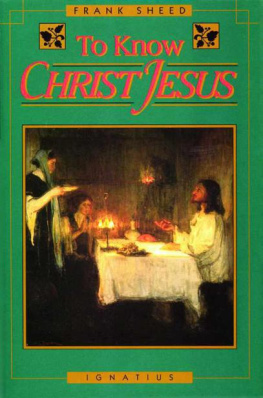
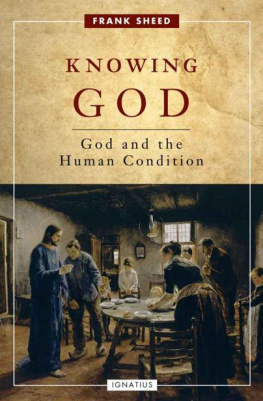
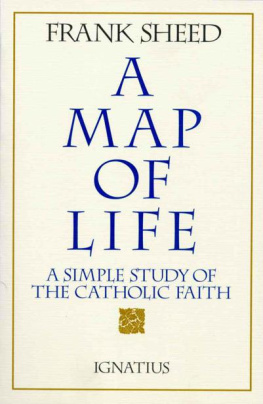
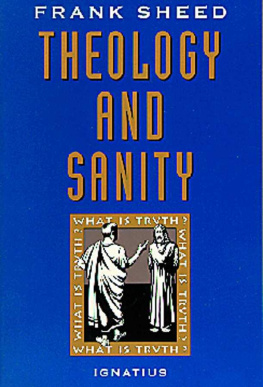
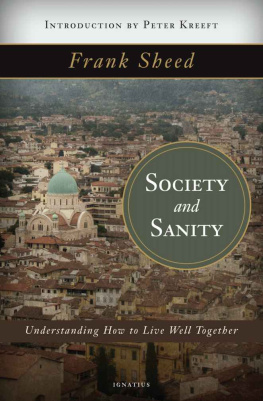

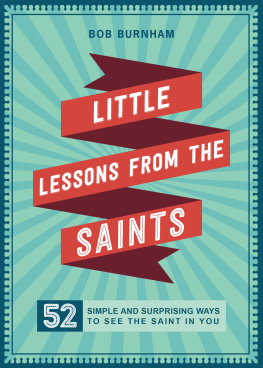
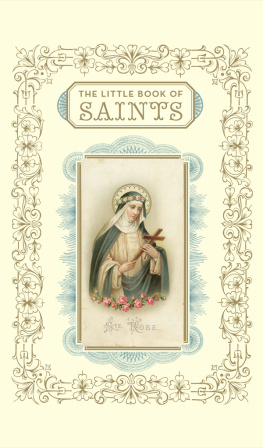
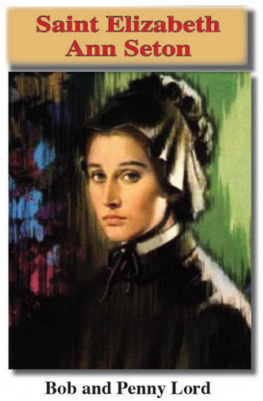
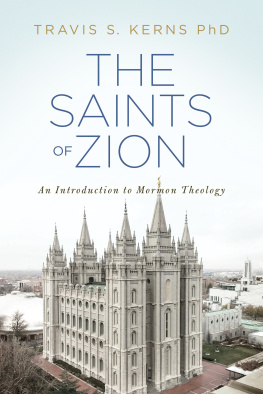

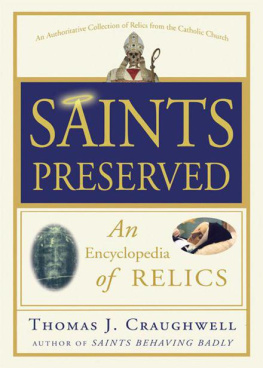
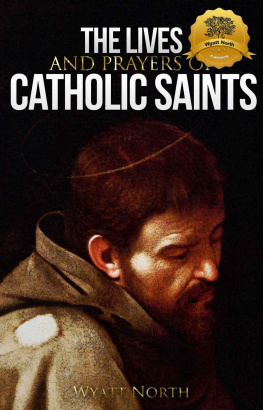

 UST BEFORE the coast of Asia Minor swings south toward Palestine, is a small triangle of soil among huge mountainsCilicia. In it, upon the Cydnus, stands the town Tarsus. For a thousand years before Christ, Greeks, Assyrians, Persians, Syrians, Jews, and, last of all, the Romans, had poured into the land; Julius Caesar himself had fascinated the town and for a while it renamed itself Juliopolis. When he was murdered, Anthony went there to visit his half-of-the-world, and Cleopatra, with purple sails and silver oars, was carried up the Cydnus to visit him. But the town had retained its proud personality and had deserved to do so. To maintain and develop itself, it had literally hurled its river this way and that, the stream that used to run now in driblets, and now torrential and yellow, making the plain a mere marsh horrible with malaria. It had established the shifting coastline with solid quays, huge docks and warehouses; inland, behind the steaming orchards, its merchants had built opulent villas on the foothills; and even through the Taurus range, that rock wall over 4,000 feet high behind them, chisels had carved a carriage road with cliffs sheer 600 feet this side and that, for trade to pass over the bleak uplands with their boulders, salt-crusted lakes, and heaths, and descend once more to the vast emporiums like Ephesus or Smyrna, and set forth, westward, to Greece, to Italy, Spain or Gaul, or Britain. High above even these aristocrats of trade, lived Roman Citizens of Tarsus, proud as princes.
UST BEFORE the coast of Asia Minor swings south toward Palestine, is a small triangle of soil among huge mountainsCilicia. In it, upon the Cydnus, stands the town Tarsus. For a thousand years before Christ, Greeks, Assyrians, Persians, Syrians, Jews, and, last of all, the Romans, had poured into the land; Julius Caesar himself had fascinated the town and for a while it renamed itself Juliopolis. When he was murdered, Anthony went there to visit his half-of-the-world, and Cleopatra, with purple sails and silver oars, was carried up the Cydnus to visit him. But the town had retained its proud personality and had deserved to do so. To maintain and develop itself, it had literally hurled its river this way and that, the stream that used to run now in driblets, and now torrential and yellow, making the plain a mere marsh horrible with malaria. It had established the shifting coastline with solid quays, huge docks and warehouses; inland, behind the steaming orchards, its merchants had built opulent villas on the foothills; and even through the Taurus range, that rock wall over 4,000 feet high behind them, chisels had carved a carriage road with cliffs sheer 600 feet this side and that, for trade to pass over the bleak uplands with their boulders, salt-crusted lakes, and heaths, and descend once more to the vast emporiums like Ephesus or Smyrna, and set forth, westward, to Greece, to Italy, Spain or Gaul, or Britain. High above even these aristocrats of trade, lived Roman Citizens of Tarsus, proud as princes.